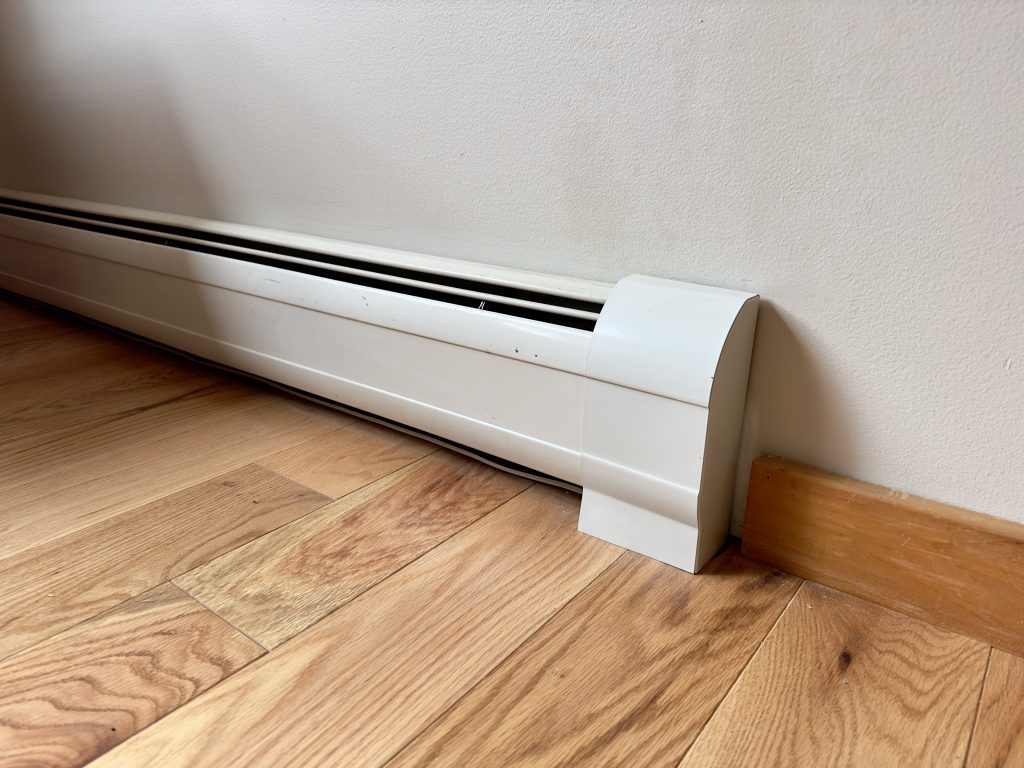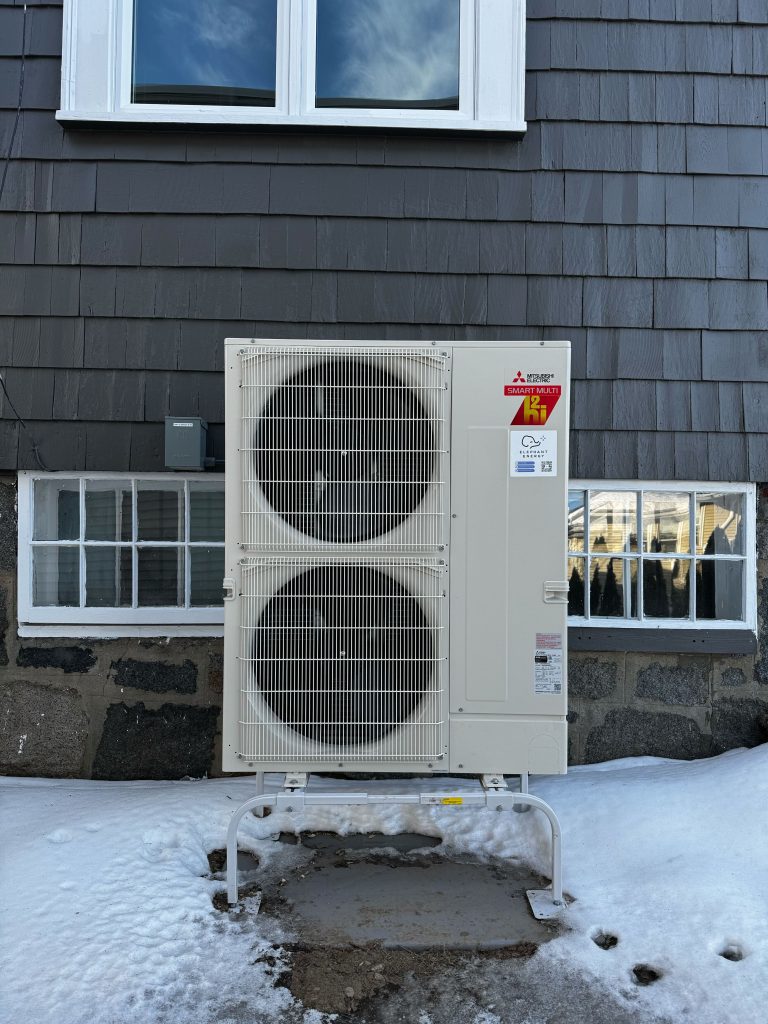Choosing the right heating system is a big decision that impacts your comfort, energy bills, and environmental footprint. If you’re debating between electric heat vs. a heat pump, you’re not alone. Many homeowners are weighing their options as they look for more efficient, cost-effective, and sustainable ways to heat (and cool) their homes.
In this guide, we’ll break down the key differences, benefits, and trade-offs between electric heat and heat pumps, helping you make an informed decision. Let’s get started!
Understanding Electric Heat and Heat Pumps
Before diving into the pros and cons, it’s important to understand what these systems are and how they work. Here’s a quick overview of electric heat and heat pumps to set the stage.
What Is Electric Heat?

Electric heating systems use resistance heating to generate warmth. This means they convert electricity directly into heat. Common types include:
- Baseboard Heaters: Installed along the base of walls, these are relatively inexpensive upfront but can be costly to operate.
- Electric Furnaces: Central systems that use electric heating elements to warm air, which is then distributed through ducts.
- Space Heaters: Portable units for localized heating, great for supplemental warmth but inefficient for whole-home use.
Pros of Electric Heat:
- Lower upfront cost and easier installation.
- Reliable and consistent heating, regardless of outdoor temperatures.
- Minimal maintenance compared to more complex systems.
Cons of Electric Heat:
- Higher operating costs due to lower efficiency.
- No cooling capability—separate AC units are needed for summer.
- Higher carbon footprint unless powered by renewable energy sources.
What Is a Heat Pump?

A heat pump is an energy-efficient HVAC system that transfers heat rather than generating it. It works by moving heat from one place to another:
- In Winter: It extracts heat from the outside air (even in cold temperatures) and transfers it indoors.
- In Summer: It reverses the process, acting as an air conditioner by moving warm indoor air outside.
There are three main types:
- Air-Source Heat Pumps: The most common and cost-effective option, extracting heat from the outdoor air. These are ideal for most climates and are the type Elephant Energy specializes in.
- Ground-Source (Geothermal) Heat Pumps: More efficient but costlier to install, using the earth’s constant temperature as a heat source.
- Water-Source Heat Pumps: Less common and location-dependent, using a body of water (like a lake or pond) as the heat source or sink.
Pros of Heat Pumps:
- Highly efficient, using 2-4 times less energy than electric resistance heating.
- Provides both heating and cooling in one system.
- Lower operating costs and reduced carbon footprint.
Cons of Heat Pumps:
- Higher upfront cost, although rebates and incentives can help offset this.
- Requires outdoor space for the unit.
- Slight performance dip in extremely cold climates, but Elephant Energy specializes in cold-climate heat pumps, which are designed to handle sub-zero temperatures.

Efficiency and Operating Costs
When it comes to heating your home, efficiency and cost go hand in hand. Let’s compare the efficiency of heat pumps vs electric heat in terms of energy usage and what that means for your monthly bills.
Electric Heat
- Efficiency: Electric heating has a 1:1 electricity-to-heat output ratio, meaning every unit of electricity produces one unit of heat. This is less efficient compared to heat pumps.
- Operating Costs: Electric heaters typically cost more to run because they require more electricity to produce the same amount of heat. This can lead to high energy bills, especially in colder climates or regions with high electricity rates.
Heat Pump
- Efficiency: Heat pumps are more efficient because they transfer heat rather than generate it. With a Coefficient of Performance (COP) ranging from 2 to 4, they produce 2 to 4 units of heat per unit of electricity.
- Operating Costs: Their high-efficiency results in lower monthly bills, offering significant long-term savings compared to electric heat.
Winner: Heat Pump – Thanks to their superior efficiency, heat pumps are the smarter choice for budget-conscious and eco-minded homeowners.
Comfort and Versatility
Your heating system isn’t just about warmth but comfort and convenience all year round. Here’s how electric heat and heat pumps compare in terms of versatility and maintaining the perfect indoor climate.
Electric Heat
- Heating Only: Electric systems provide consistent, reliable heat but don’t offer cooling, requiring a separate air conditioning system for summer months.
- Localized Heating: Electric systems can create uneven temperatures, leading to hot and cold spots in different rooms.
Heat Pump
- Heating and Cooling: A heat pump provides both heating and cooling, offering year-round comfort in one system.
- Consistent Indoor Climate: Heat pumps maintain even temperatures throughout the home, eliminating hot and cold spots.
Winner: Heat Pump – With dual functionality and more consistent comfort levels, heat pumps provide a superior indoor climate experience.
Environmental Impact
For many homeowners, sustainability is a top priority. Let’s explore the environmental implications of electric heat vs. heat pumps to see which one aligns with your sustainability goals.
Electric Heat
- Higher Carbon Footprint: Electric resistance heating consumes more electricity for the same amount of heat than heat pumps. This leads to a larger carbon footprint, especially if the electricity is sourced from fossil fuels.
Heat Pump
- Energy Efficiency: Heat pumps use significantly less electricity and are designed to pair well with renewable energy sources like solar power, making them a more sustainable option.
- Home Electrification Benefits: Heat pumps support a fully electric home, reducing dependency on fossil fuels and aligning with long-term sustainability goals.
Winner: Heat Pump – For environmentally-conscious homeowners, heat pumps are the clear choice.
Why Choose Elephant Energy?
Upgrading your home’s heating system is a big decision, but it doesn’t have to be complicated. At Elephant Energy, we make the switch to a heat pump simple and stress-free. Our Electrification Roadmap ensures the perfect system size and setup for maximum efficiency and comfort. Plus, with our Rebate Guarantee, you can maximize your savings while reducing your carbon footprint.
Ready to Make the Switch? Get started or generate your free Electrification Roadmap to take the first step toward a more comfortable, energy-efficient home.